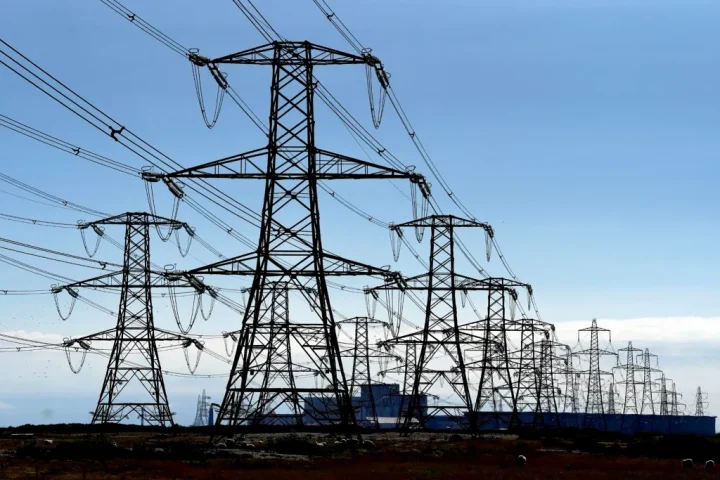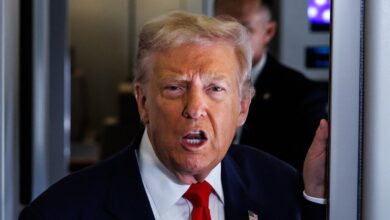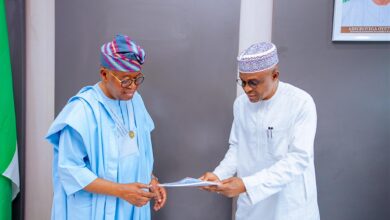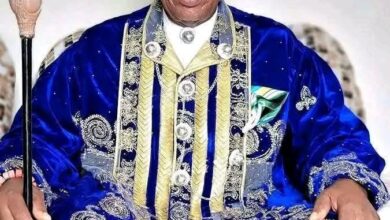Nigeria’s Electricity Crisis: A persistent Cycle of Corruption, Outdated Infrastructure and Vandalism

The Nigeria electricity supply system keeps dwindling by the day despite numerous promises from the present administration to accelerate the pace of service delivery in the sector .
The supposedly ‘Giant of Africa’ which currently supplies electricity to the Republic of Benin, Togo and Niger is grappling with providing sustainable power to it’s citizens.
This problem affects the country’s economy as it causes reduced productivity and revenue decline.
With a population of over 230,000,000 , the required electricity generation capacity is 40,000MW but the capacity generated currently is 11,522MW due to lack of infrastructure .Consequently, the power generated is 4,000MW to 4,500MW.
The national grid had collapsed thrice in one week and eight times in 2024.This is least expected of a country that is rich in coal, oil, gas and potential for renewable energy .
In January, while delivering his new year speech, President Bola Ahmed Tinubu stated that his administration recognizes that no meaningful economic transformation can happen without steady electricity supply.He mentioned measures put in place to better the situation.
He said “Just this past December during COP28 in Dubai, the German Chancellor, Olaf Scholz, and I agreed and committed to a new deal to speed up the delivery of the Siemens Energy power project that will ultimately deliver reliable supply of electricity to our homes and businesses under the Presidential Power Initiative which began in 2018.
“Other power installation projects to strengthen the reliability of our transmission lines and optimise the integrity of our National grid are ongoing across the country.
The Minister of Power, Adebayo Adelabu who apologized to Nigerians over the incessant power outages due to the frequent grid collapses, blamed the challenge on obsolete equipment that is 50 years old.
After a meeting with the President recently, while apologizing for the poor situation, he disclosed to journalists that the country will continue to experience grid disturbances until there is a complete overhaul of the system.
“Before this, the last disturbance of the grid was about four months ago, which meant that we have been managing the grid.
“Let me tell you the truth of the matter is, we have old infrastructure. We have a national grid that is more than 50 years old.
“We have national grid whose transmission lines are weak, the towers are falling and the substations, the transformers are old. In fact, the transfer that actually exploded in Jeba was 47 years old. We’ve been trying to revamp this to change them, but they cannot all be changed overnight.
“What we continue to do is to manage the grid to prevent frequent occurrence of the grid disturbance, until we’re able to completely overhaul the grid itself, then we’ll have a reliable grid.” he said.
On 22nd October 2024, the Transmission Company of Nigeria (TCN) reported power outage in the north-east, north-west and parts of north-central after 330-kilovolt (kV) Ugwaji–Apir double circuit transmission lines 1 and 2 tripped.
TCN also said the Shiroro-Kaduna line was vandalised, leading to a reduction of bulk electricity to Kaduna, Kano and other major cities in the north.
Two days later, TCN said a snapped 330kv transmission line in the swampy forest of Igumale, Benue state, led to the blackout.
On 27th October, 2024, TCN said insecurity delayed repair, but it is working tirelessly to restore the bulk power supply.
Tinubu had earlier directed TCN to hasten repair and directed Nuhu Ribadu, the National Security Adviser (NSA) to provide security.
Adelabu said the root cause is vandalisation of the transmission lines of Shiroro-Kaduna line.
Speaking to journalists on 27th October,2024 after a meeting with President Bola Tinubu, Adelabu said security has been strengthened to allow the Transmission Company of Nigeria (TCN) to carry out repairs, with support from the office of the national security adviser (ONSA) and military officials.
“We discussed the root cause of this, which was basically due to vandalization of the transmission lines of Shiroro Kaduna line, which is the major line that supply electricity to the north, and the transmission Company of Nigeria, TCN, are already set out to fix this line.
“What they have asked for, which has been provided to them now, is the security cover of the National Security Advisor through the chief of army staff and Chief of Air Staff to enable them restore the damaged line. And we are optimistic that very soon this will be fully restored.”
“And if you remember that at the last FEC one of the approvals for the ministry of power was actually the upgrade of the Siroro Kaduna transmission line, which is the major line that supply electricity to the northern part of the country.
“We already have approval for this. It is one of the oldest transmission lines that we have in Nigeria, and we believe that it requires an upgrade. And through the magnanimity of Mr President and the Federal Executive Council, we got an approval to fix the line on a permanent basis.
“Once this is done, I believe that power to the North will be more stable than we’re experiencing right now.”
Adelabu stated that the world is moving in this the 21st century, and apparently, the most effective way of supplying uninterrupted, functional, stable and reliable electricity to the northern part of Nigeria is through the distributed power model, whereby each of the northern states will have an embedded utility, solar scale, solar source.
He affirmed that all the 20 states will be insulated and immune from each other.He added that there are interested contractors and financiers that are ready to install 100 megawatt each for each of the 20 northern states, which is scalable to 50 megawatts at first, then upgraded to 100 megawatt.
Adelabu also assured that talks are on with the Nigerian Electricity Regulatory Commission (NERC) to address consumer grievances regarding recent power outages, particularly for those in Band A tariff categories.
He said he will meet with Sanusi Garba, Nigeria Electricity Regulation Commission (NERC)’s chairman, and electricity distribution companies (DisCos) to discuss compensation measures for those days consumers suffered blackout.
He pointed that protecting the national grid and avoiding further vandalisation, requires collective efforts.
It is worthy to note that corrupt leadership is one of the causes of this problem.A former Minister of Power, Saleh Mamman,who served under former President Muhammadu Buhari from 2019 to 2021 was arraigned on 12-count of charges bordering on conspiracy to commit money laundering and possession and use of known proceeds of criminal conduct.
Mamman was accused of conspiring with staff of the ministry in charge of the accounts of the Zungeru and Mambilla Hydro Electric Power projects to divert about N22 billion.
The investigations uncovered properties in Nigeria and overseas allegedly linked to the suspects, while millions of naira and dollars were reportedly recovered.
The International Trade Administration opins that the Nigerian power sector will require significant investment to achieve reliable power supply as industry operators estimate that the country will require as much as $100 billion in investment over the next 20 years to maintain current service.
Encouraging private investment in the power sector will to improve efficiency.
Investing in solar, wind, and hydroelectric power to reduce dependence on fossil fuels and upgrading transmission and distribution infrastructure to increase capacity is also an escape route from this problem.
Addressing Nigeria’s electricity supply problem requires a composite approach that deals with these challenges and explores sustainable solutions.
Comparing Nigeria’s Power Generation Capacity With Other African States
1. South Africa
63 million ( estimated by world bank),
Size: 1,219,912 square kilometers (471,445 sq mi)
The country produces around 245,000 GWh of electricity annually, with most of it coming from coal . Coal-fired power stations account for about 78% of the country’s electricity generation, making South Africa one of the largest emitters of greenhouse gases in the world.
2. Ghana
Population
35 million
Size: 239,567 km2 (92,497 sq mi)
Electricity Generation:
Ghana’s installed capacity for existing power plants is approximately 4,132MW, consisting of hydroelectric power which is 38% of the total capacity. Thermal Power is 61% of the total capacity, fueled by crude oil, natural gas, and diesel while solar Power is Less than 1% of the total capacity.
3. Kenya
Population :58.8 million
Size
580,367 square kilometers (224,081 sq mi)
Electricity Generation: Kenya is aiming to reach 100% green energy by 2030 . Currently, renewable energy sources account for about 60% of Kenya’s electricity generation, with geothermal power being the largest contributor, Kenya is the largest producer of geothermal energy in Africa, with the potential to produce 10,000 megawatts of geothermal-powered electricity.
4. Côte d’Ivoire
Population : 33 million
Size
322,463 square kilometers (124,502 sq mi)
Electricity Generation:Côte d’Ivoire has power capacity of almost 2,230 megawatts. The country now meets its domestic demand and even exports about 10% of its generation surplus to neighboring countries
5. Nigeria
Population
234 million: Size
923,768 square kilometers (356,669 sq mi)
Electricity Generation:
Nigeria’s electricity landscape is quite complex. The country has made progress in increasing its power generation capacity, with a total of 33,448,633 MWh of energy generated in 2019 . However, the sector still faces significant challenges, including inadequate infrastructure, inefficiencies, and lack of access to electricity for many citizens.











